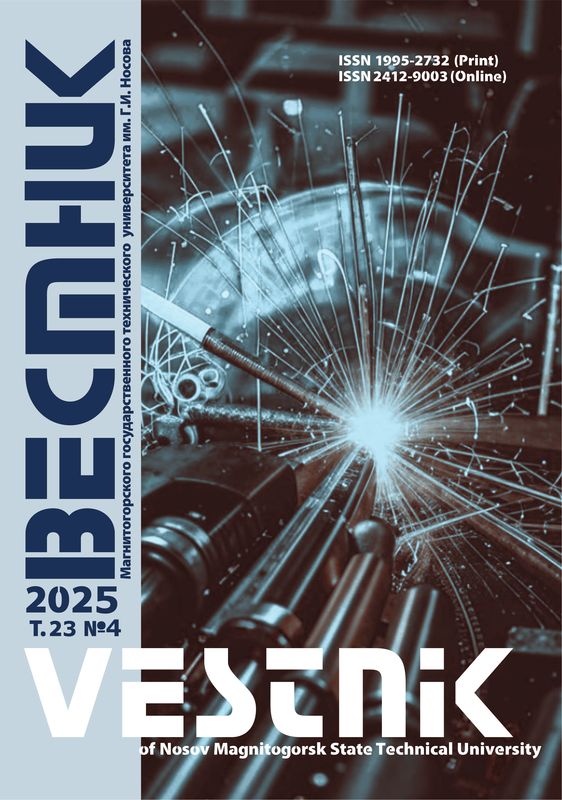DOI: 10.18503/1995-2732-2021-19-4-82-90
Abstract
The paper describes a currently important issue of introducing risk-based thinking at industrial enterprises. Risk-based thinking can significantly increase effectiveness of the quality management system (QMS) of the enterprise and ensure the prevention of adverse consequences. At initial stages any innovations encounter resistance of the staff. First of all, this is due to psychological aspects and a lack of understanding of benefits from helpful changes. Introducing risk-based thinking is not an exception. Despite a widespread use of certified quality management systems, risk-based thinking at enterprises remains formal, which does not allow realizing completely a full potential of QMS. The paper is devoted to solving three problems that arise, when introducing risk-based thinking: a lack of risk management culture; a formal approach to introducing methods; and a lingering process of the transition to a common use of digital technologies. The authors suggest a structured approach to a gradual "soft" transition to risk-based thinking. The key problems are stated and possible ways of their solution are outlined. The suggested solutions are based on well-known methods of a system analysis and a process approach. The authors studied and analyzed the following main stages of introducing risk-based thinking: creating conditions for forming risk-based thinking culture; the transition from a formal introduction to risk-based thinking; the transition to a common use of digital technologies. The suggested approach can be the basis used to begin forming culture of dealing with risks (opportunities) of the enterprise. Depending on special features of the organization's environment, the stages may undergo changes. The authors are open to constructive dialogue and criticism.
Keywords
Risk-based thinking, quality, method, system, leadership.
For citation
Soldatov V.G., Vavilin Ya.A., Mankevich I.G. Problems and Ways of Introducing Risk-Based Thinking. Vestnik Magnitogorskogo Gosudarstvennogo Tekhnicheskogo Universiteta im. G.I. Nosova [Vestnik of Nosov Magnitogorsk State Technical University]. 2021, vol. 19, no. 4, pp. 82–90. https://doi.org/10.18503/1995-2732-2021-19-4-82-90
1. Bardina T.N., Makarova L.V., Tarasov R.V. Managing risks of processes of the quality management system. Dnevnik nauki [Journal of Science], 2019, no. 1 (25), p. 14. (In Russ.)
2. Hayashi Y., Kamei K. Risk management. Science of societal safety: living at times of risks and disasters. Edited by Abe S., Ozawa M., Kawata Y.; Springer, Singapore, 2019; vol. 2, pp. 121–128. DOI: 10.1007/978-981-13-2775-9_11
3. Oshikoya T.W. Risk management. Frontier capital markets and investment banking: principles and practice from Nigeria. Routledge, England, 2019, pp. 80–90.
4. Manzo C., Cochino E., Merchant L., Mazzaglia G. Risk management. Edited by B. Strom, S. Kimmel, S. Hennessy. Pharmacoepidemiology, 6th Edition, John Wiley & Sons, 2019, pp. 581–616.
5. Buganova K., Simickova J. Risk management in traditional and agile project management. 13th International Scientific Conference on Sustainable, Modern and Safe Transport (Transcom 2019). Novy Smokovec, Slovakia, May 29–31, 2019; Bujnak J., Guagliano M., 2019, pp. 986–993. DOI: 10.1016/j.trpro.2019.07.138
6. Kartashova O.I., Molchanova O.V., Turgaeva A. Insurance risks management methodology. Journal of Risk and Financial Management, 2018, vol. 11. DOI: 10.3390/jrfm11040075
7. Jenkins I.S. Risk and safety management. Adventure tourism and outdoor activities management: a 21st century toolkit, 2019, pp. 77–90.
8. Romanskaya A., Berdnikov A. Project risk management methodology. Integrated computer technologies in mechanical engineering: synergetic engineering, 2020, pp. 427-436. DOI: 10.1007/978-3-030-37618-5_36
9. Gatti S. Project characteristics, risk analysis, and risk management. Project Finance in Theory and Practice: Designing, Structuring, and Financing Private and Public Projects, 3rd edition, 2018, pp. 63–103. DOI: 10.1016/B978-0-12-811401-8.00003-9
10. Meyer T., Reniers G., Cozzani V. Introduction to risk management (RM). Risk Management and Education, 2019, pp.1–14. DOI: 10.1515/9783110344578-001
11. Tsakaev A.Kh., Saidov Z.A. Transformations in risk management methodology and their impact on quality management standards. Vestnik Chechenskogo gosudarstvennogo universiteta [Bulletin of Chechen State University], 2019, no. 4, pp. 7–14. (In Russ.)
12. Mishura L.G., Vasilyeva Yu.V., Abduraimova N.O. Technologies of risk assessment at the stages of the risk management process. Modern Economy Success, 2020, vol. 5, pp. 68–72. (In Russ.)
13. Soloviev V.P., Pereskokova T.A. Process and risk-oriented thinking of employees. Russian Journal of Industrial Economics, 2020, vol. 13, pp. 206–217. (In Russ.)
14. Solovyov V.P.; Pereskokova T.A. Commitment to quality and risk-oriented thinking of employees is the basis of the modern economy. Sciences of Europe, 2019, vol. 45–5, pp. 8–16.
15. Chernov V.B. Risk analysis of an integrated investment project. Risk Management, 2018, vol. 3, pp. 56–64.
16. Chistokletov N., Vavilin Y., Safety management system of machine-building production. Engineering Review, 2018, vol. 38, pp. 226–231.
17. ISO 9001:2015 Sistemy menedzhmenta kachestva. Trebovaniya [Quality management systems - Requirements]. Moscow: Standartinform, 2020, 32 p. (In Russ.)
18. ISO 31000:2018 Menedzhment riska. Printsipy i rukovodstvo [Risk management – Guidelines]. Moscow: Standartinform, 2020, 20 p. (In Russ.)
19. ISO Guide 73:2009 Menedzhment riska. Terminy i opredeleniya [Risk management – Vocabulary]. Moscow: Standartinform, 2020, 16 p. (In Russ.)
20. GOST R 58771-2019 Menedzhment riska. Tekhnologii otsenki riska [Risk management. Risk assessment technologies]. Moscow: Standartinform, 2020, 86 p. (In Russ.)
21. GOST R 51901.21-2012 Menedzhment riska. Reestr riska. Obshchie polozheniya [Risk management. Risk register. General]. Moscow: Standartinform, 2020, 12 p. (In Russ.)
22. GOST R 51901.23-2012 Menedzhment riska. Reestr riska. Rukovodstvo po otsenke riska opasnykh sobytiy dlya vklyucheniya v reestr riska [Risk management. Risk register. Guide on assessment of hazards risk for inclusion in risk register]. Moscow: Standartinform, 2020, 30 p. (In Russ.)












